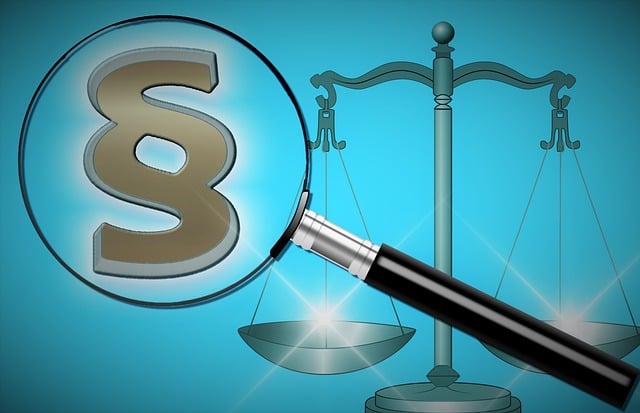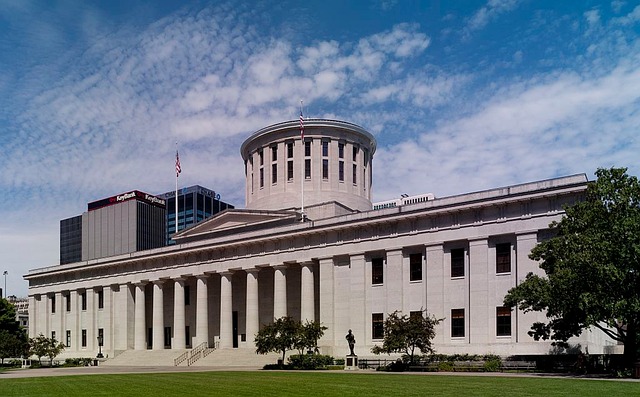The "Steps in Criminal Procedure Litigation" form the legal framework for criminal cases, from law enforcement's initial investigation to verdict. This process includes arrest, charge determination, pretrial motions, trial, and jury/judge decision, with fairness as a core principle. Understanding these steps is crucial for legal strategizing, particularly in complex cases like white-collar defense. Alternative Dispute Resolution (ADR) offers flexible solutions, while case studies provide insights into real-world scenarios, emphasizing the importance of efficient, just litigation for individuals and society.
“Unraveling the intricate world of litigation types, especially within criminal procedure, is essential for understanding the legal landscape. This comprehensive guide delves into the foundational aspects of criminal litigation, from the initial steps after an arrest to the final verdict. We explore how evidence and legal arguments play a pivotal role in shaping outcomes. Additionally, we introduce alternative dispute resolution (ADR) methods, providing a balanced view of common litigation types and their impact on the justice system. By understanding these processes, readers gain valuable insights into the steps involved in criminal procedure litigation.”
- Understanding Criminal Procedure Litigation: A Foundation for Legal Processes
- Steps in Criminal Litigation: From Arrest to Verdict
- The Role of Evidence and Legal Arguments in Shaping Outcomes
- Alternative Dispute Resolution (ADR) Options within Criminal Cases
- Case Studies: Exploring Common Litigation Types and Their Impact
Understanding Criminal Procedure Litigation: A Foundation for Legal Processes

Understanding Criminal Procedure Litigation is essential as it forms the foundation for various legal processes. This type of litigation involves the steps and procedures followed when a criminal case makes its way through the justice system. It encompasses all stages, from the initial investigation to prosecution and, ultimately, resolution via plea bargains or jury trials.
The process begins with law enforcement conducting inquiries, gathering evidence, and identifying potential suspects in cases involving white-collar and economic crimes. This is followed by a thorough review of the collected data to determine if there’s sufficient proof to file formal charges. Throughout these stages, the focus remains on ensuring fair practices and adhering to legal protocols. Subsequently, defendants are notified, allowing them to mount defenses, which may lead to negotiations or, if unresolved, proceeding to jury trials where a neutral party decides the outcome based on presented evidence.
Steps in Criminal Litigation: From Arrest to Verdict

The steps in criminal litigation are a series of procedural stages that begin from the moment of arrest and culminate in a verdict. It’s a complex process designed to ensure fairness, protect rights, and facilitate a just resolution. Initially, law enforcement officers make an arrest based on probable cause, often following an investigation or report of a crime. This is followed by an initial appearance before a magistrate judge, where the accused is informed of the charges and potential consequences.
The next crucial phase involves pretrial proceedings, where legal strategies are developed. This includes motions to suppress evidence, challenging the admissibility of statements, and other defensive maneuvers. If these attempts to avoid indictment or mitigate charges fail, the case proceeds to trial. During trial, both prosecution and defense present their cases, including witness testimony, physical evidence, and legal arguments. Ultimately, a jury or judge deliberates and returns a verdict, either acquitting the accused or finding them guilty. This process is critical for both corporate and individual clients, as it determines outcomes in criminal cases, potentially leading to winning challenging defense verdicts.
The Role of Evidence and Legal Arguments in Shaping Outcomes

In litigation, whether it’s a civil or criminal case, evidence and legal arguments play a pivotal role in shaping outcomes. The Steps in Criminal Procedure Litigation process involves a series of careful steps where both parties present their evidence, witness testimonies, and legal interpretations to support their respective cases. This intricate dance of argumentation and proof is what ultimately determines the verdict or settlement.
In the context of corporate and individual clients, especially in complex cases like white-collar defense, understanding this dynamic becomes crucial. Jury trials, for instance, hinge on the persuasive power of evidence and arguments presented by both the prosecution and defense teams. The ability to navigate these aspects effectively can significantly influence the outcome, making it a key area of focus for legal strategists.
Alternative Dispute Resolution (ADR) Options within Criminal Cases

Alternative Dispute Resolution (ADR) offers a range of options within criminal cases, providing flexible solutions to traditional litigation. These processes are particularly valuable in navigating the complex steps in criminal procedure litigation, which often involve intricate legal arguments and potential life-altering outcomes for both corporate and individual clients. ADR methods such as mediation, arbitration, and negotiated pleas allow for more control over the outcome, enabling parties to reach mutually agreeable resolutions outside of court.
By opting for these alternatives, philanthropic and political communities can benefit from faster, more cost-effective dispute resolution. Jury trials, while a cornerstone of criminal justice, can be lengthy and expensive, often straining judicial resources. ADR, on the other hand, facilitates quicker dispositions, preserving time and financial resources that can be allocated to other critical aspects of the legal system.
Case Studies: Exploring Common Litigation Types and Their Impact

Case studies offer a compelling way to understand the diverse landscape of litigation types and their real-world implications. By examining common scenarios, we can gain insights into how different legal processes unfold, from the initial filing to resolution. This is particularly crucial in the realm of criminal procedure, where the steps involved can significantly impact an individual’s life and liberty. For instance, a deep dive into white-collar defense cases reveals intricate strategies used to navigate complex financial crimes, often involving high-stakes negotiations and specialized legal expertise.
These studies further highlight how general criminal defense attorneys play a vital role in balancing the scales of justice. From initial investigations to jury trials, their steps include gathering evidence, challenging prosecution claims, and presenting mitigating factors. Understanding these processes is essential for both legal professionals and the public, as it underscores the importance of fair and efficient litigation in ensuring a just society.
Understanding the intricate details of criminal procedure litigation is paramount for both legal professionals and individuals navigating the justice system. By grasping each step within the criminal litigation process, from arrest to verdict, one can appreciate the significant role evidence and legal arguments play in shaping outcomes. Additionally, recognizing Alternative Dispute Resolution (ADR) options allows for more efficient and mutually agreeable resolutions. This article’s exploration of various litigation types and their impacts serves as a valuable resource for those seeking insight into the complex world of criminal procedure.






